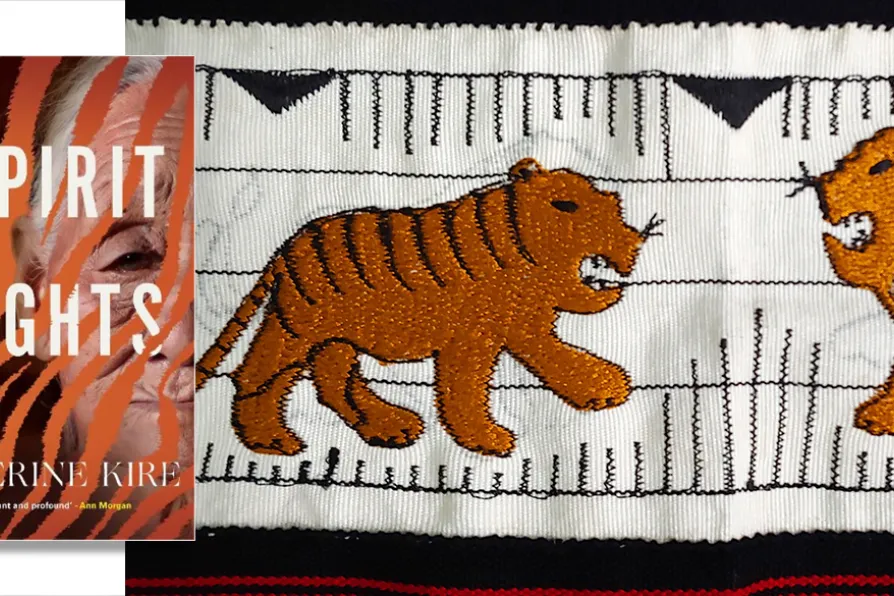ANGUS REID calls for artists and curators to play their part with political and historical responsibility

 Nagaland shawl with tiger and lion motiv
Nagaland shawl with tiger and lion motiv
Spirit Nights
by Easterine Kire
Barbican Press, £9.99
SPIRIT NIGHTS is a challenging yet compelling read, but one likely to fully reward the persistent reader by its close.
Both set in and inspired by the rich cultural history of Nagaland, the remote state in north-eastern India, author Easterine Kire offers an immersive experience that certainly can be classified as part mythology and part an ethnographical study.
Yet, in so many more respects, it is far more than the combination of these two genres, as it also explores the universal themes of love, loss, courage and the tension between individual and collective responses to existential threats.
The novel recounts the experiences of a small village as seen through the lives and dreams of Tola and her family, especially the growth into manhood of her sole grandchild, Namu.
This is a world at once in balance with nature in terms of the annual cycles of planting and harvesting and in fear of it as expressed by the tiger spirits that roam the countryside outside the village gates.
The novel starts towards its eventual chronological end, as the community is plunged into a stifling darkness that envelopes both the sky and people’s hopes.
Tola exclaims, seemingly in panic that “Tiger has eaten the sun! Tiger has eaten the sun!”
But as the account switches back to her early years it is clear that this elderly woman holds the key to resolving this gargantuan catastrophe.
Eschewing any hint of orientalist whimsy, Kire therefore presents a multidimensional world of seers, dreams and prophecies that both encourage and immiserate the villagers.
The divisions in the village between generations and between the sexes are neatly picked out clearly, not least in Tola’s self-censorship.
The devastation caused to the community from a brutal raid by a neighbouring village are neatly counterpoised by the gentle welcome given to some of their refugees by a third settlement.
Such an unapologetic and comprehensive blending of physical and spiritual encounters is a key motif of Spirit Nights. Some readers are likely to ease quite happily into these worlds.
Being somewhat culturally distant from them, however, I must admit to being both challenged and frustrated by their interplay — at least initially.
Falling into a Western trap of wanting to understand the symbolism behind every reference, I came close to dispensing with what is in length little more than a novella on many occasions.
To what was the tiger an allusion? Could the weeks-long disappearance of the sun be a metaphor for cultural genocide? And so, unhelpfully, on.
But I’m glad I didn’t. I learnt to read Spirit Nights with my inner eye and to follow the wise author in viewing each situation just as she presented them.
By the end, I had come to appreciate and admire Tola and her family and the stories and customs that she embodies.

















